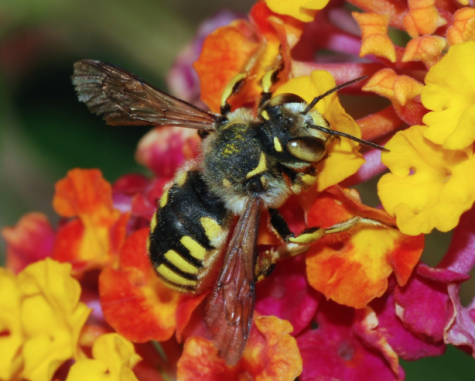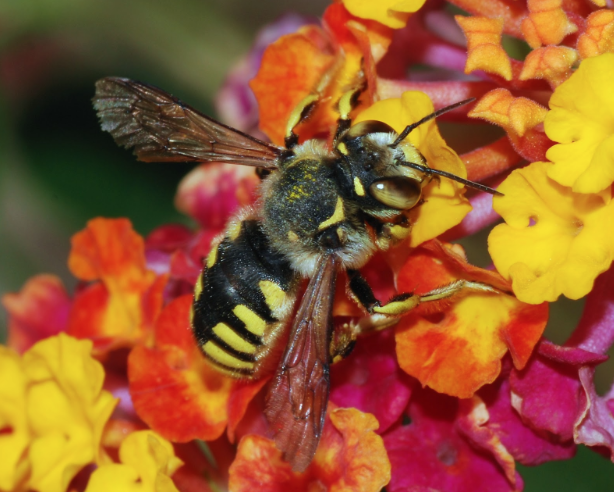Bee Colonies Collapse, Honeybees Hurting
October 24, 2018
Contrary to the painful stings and irritating allergies originating from the presence of bees, the insect is a critical pollinator at the top of the list for imperative species on the planet. America’s honeybee population is currently suffering from pesticides, loss of habitat, climate change, and disease. Due to those conditions, they are in a seriously dangerous decline.
If I’m being entirely honest, what piqued my interest was ‘save the bees’ jokes on twitter. But those tweets drew me in to learn more about the issue.
The little black and yellow insects may be small, but their role in human health is quite large. Most food is dependent on bee pollination, so it is thanks to the bees working consistently hard at their jobs that we all get to eat our favorite foods. In fact, bees pollinate 70 of the top 100 human food crops, most delicious fruits, and veggies.
The work of pollinators is to transfer pollen and seeds from one plant to another. That transfer fertilizes the plant so it can produce food for us to eat. In fact, cross-pollination helps at least 30 percent of the world’s crops. While it is true that different species of insects, birds, and mammals wear the title of pollinators, it is the primary job of bees to make the transfer.
Bees are the ones who pollinate about 75 percent of the nation’s fruits, nuts, vegetables, and even spices. The best fruits out there are majorly dependent on bee population such as kiwis, apples, and my favorite fruit, cherries. 
I highly doubt many are as concerned about losing vegetables like zucchini or squash. Yes, losing bees would be a nightmare for health-nuts and vegans.
But hey, think deeper. Losing fruits is only the start. The bees are the food chain champions. Pollination isn’t just important for fruits and vegetables, but the other animals in the food chain strengthened by the protein of plants. Remember learning the food chain in elementary school? Small animals eat the fruits and grains pollinated by bees, the bigger animals eat the smaller animals, and so on. We may lose all the plants that bees pollinate, but more importantly to some, we may lose all of the animals that eat those plants.
Is it likely that the bee population will be wiped out anytime soon? Not likely. However, it is the human race’s obligation to preserve if not improve the world for future generations. I have not lost hope in humanity’s empathy.
When these hero honey bees deserve nothing but praise, the species is struggling to survive against pesticides, diseases, and a loss of habitat. There are simple, practical ways to keep the bees alive and thriving.
First of all, do not use any pesticides in your yard. (I don’t understand pesticides anyways. Pesticides can make gardens pretty, but they’re unnatural! They’re basically the steroids of the plant world.) The chemicals in pesticides contribute to the loss of bees. Plants treated with pesticides are extremely harmful to bees. When chemical treatments are applied to flowers and the bee attempts to pollinate, those pesticides have the potential to hurt their ability to reproduce or even kill them when they are simply attempting to do their jobs. If that bee is spared, that doesn’t make it okay. In fact, it is worse for humans. When pollen and nectar tainted with pesticides are taken back to the beehive, all of those chemicals get into the honey that you consume.
Plant your lawn with native and bee friendly plants. Hawai’i is home to around 70 native bee species, so it only sounds right that their place of origin provides necessary sources of nectar and pollen. With the large selection of tropical plants in our state, it shouldn’t be too hard to plant some flowers for the bees. Give those hard workers a nice food supply. Honestly, I have my mom to thank for the flowers in our yard.
The one I find most important is education. Inform others on the very real issue of the bee decline! Let people know the danger in bee decline!
Yes, it is going to take work to save the bees. But it is certainly not unnecessary.


